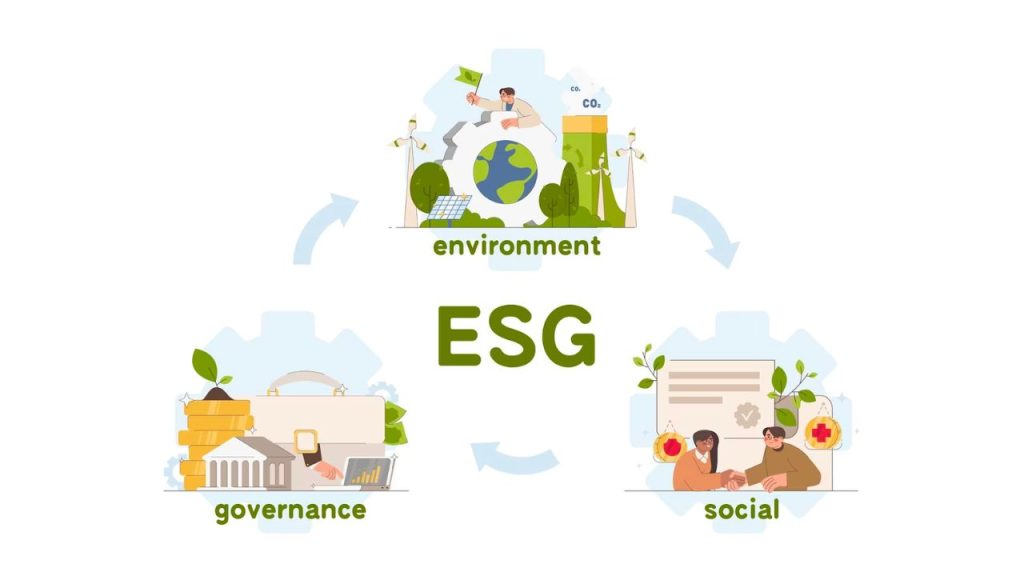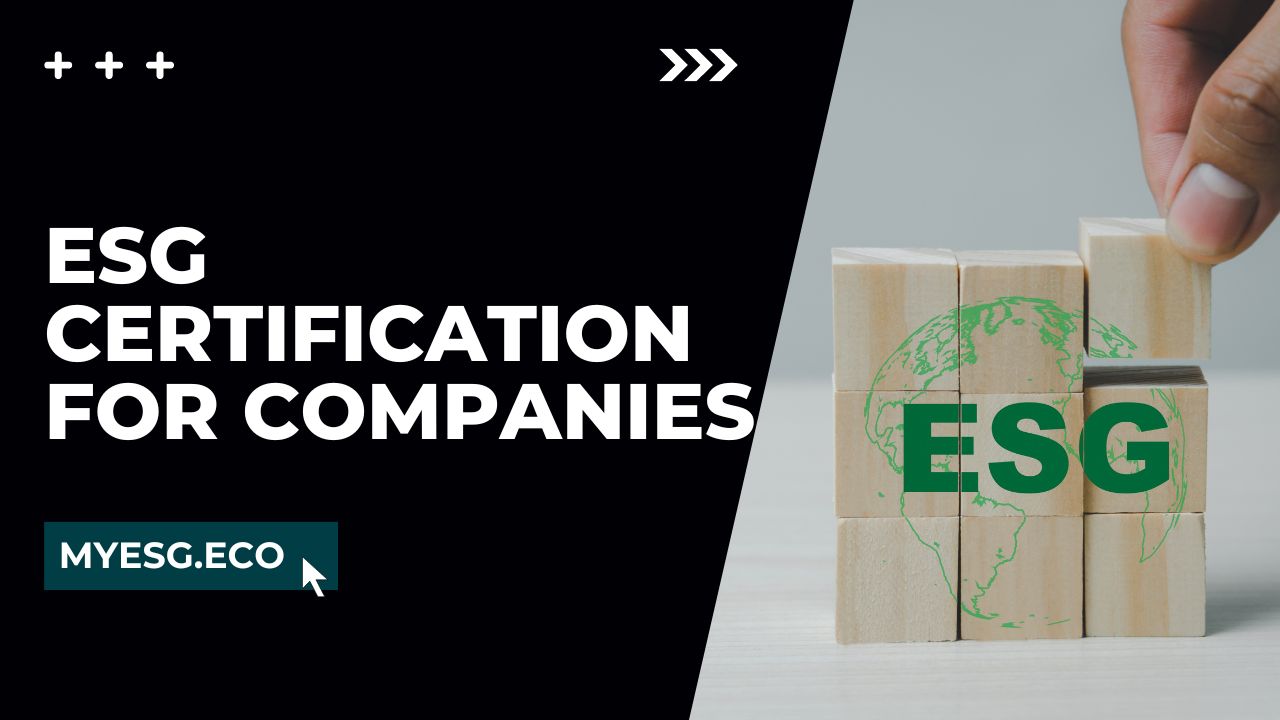Sustainability is no longer a choice. It’s a requirement.
Take your company’s commitment to the next level with ESG certification for companies. Show the world your dedication to environmental responsibility, social justice, and ethical governance.
The benefits of ESG certification for companies are clear: improved reputation, increased investor confidence, and long-term financial success.
Overview of ESG Certification for Companies
ESG (Environmental, Social, and Governance) certification is a process that assesses a company’s commitment to sustainable practices, social responsibility, and ethical governance.
It provides a comprehensive evaluation of a company’s impact on the environment, society, and its stakeholders.
The certification process is conducted by independent third-party certifiers who are recognized for their impartiality and credibility.
The significance of ESG certification for companies is that it demonstrates their commitment to sustainability and responsible corporate citizenship.
In today’s business world, consumers and investors are increasingly concerned about the environmental and social impact of the companies they support, and ESG certification provides assurance that a company is operating in a responsible and sustainable manner.
Additionally, research has shown that companies that are ESG certified tend to perform better financially over the long term, as they are better equipped to manage risks and take advantage of new business opportunities.
ESG Certification Benefits
Improved Reputation and Brand Image
ESG certification demonstrates a company’s commitment to sustainable practices and responsible corporate citizenship, which can improve its reputation and brand image in the eyes of consumers and other stakeholders
Increased Investor Confidence
ESG certification provides assurance that a company is operating in a responsible and sustainable manner, which can increase investor confidence and attract more socially responsible investors.
Higher Financial Performance
Research has shown that companies that are ESG certified tend to perform better financially over the long term, as they are better equipped to manage risks and take advantage of new business opportunities.
Competitive Advantage
Companies that are ESG certified can differentiate themselves from their competitors and gain a competitive advantage, as consumers and investors are becoming increasingly concerned about the environmental and social impact of the companies they support.
Improved Risk Management
The ESG certification process requires companies to assess their risks and opportunities in relation to environmental sustainability, social responsibility, and good governance practices. This can help companies identify potential risks and opportunities and improve their risk management strategies.
Criteria for ESG Certification
Designed to assess a company’s commitment to sustainable practices, social responsibility, and ethical governance. The certification process evaluates a company’s performance in the following areas:
Environmental Sustainability
This includes the company’s impact on the environment, such as its carbon footprint, energy usage, waste management practices, and efforts to reduce its environmental impact.
Social Responsibility
This includes the company’s treatment of its employees, its impact on the wider community, and its efforts to promote social justice and equality.
Good Governance Practices
This includes the company’s governance structure, its commitment to transparency and accountability, and its efforts to prevent corruption and unethical behavior.
The ESG certification process is conducted by independent third-party certifiers who are recognized for their impartiality and credibility.
The certifiers assess a company’s performance against established criteria and provide a comprehensive evaluation of its ESG performance.
Challenges to Obtaining ESG Certification
Cost of Certification
The cost of ESG certification can be significant, and companies must be prepared to invest time and resources into the process. This can include the cost of hiring consultants, conducting audits, and implementing necessary changes to meet the certification criteria.
Complexity of ESG Reporting
The ESG reporting process can be complex, and companies must have the necessary systems and processes in place to accurately assess their performance and report on their ESG activities. This can be a significant challenge, especially for smaller companies that may not have the resources to invest in ESG reporting systems.
Integration of ESG Principles into Operations
Integrating ESG principles into a company’s operations and decision-making processes can be a significant challenge, as it requires a significant cultural shift and a commitment to long-term sustainability. Companies must be willing to make the necessary changes to their operations and processes to achieve ESG certification.
Keeping Up with Changing Standards
The ESG certification process is constantly evolving, and companies must be prepared to keep up with the changing standards and requirements. This can be a significant challenge, as companies must continually assess and improve their ESG performance to maintain their certification.
Impact of ESG certification on Groups
Investors
ESG certification provides assurance to investors that a company is operating in a responsible and sustainable manner, which can increase investor confidence and attract more socially responsible investors.
Customers
ESG certification can improve a company’s reputation and brand image, which can increase customer loyalty and attract new customers who are concerned about the environmental and social impact of the companies they support.
Employees
ESG certification can improve the reputation of a company as an employer, which can attract and retain top talent. Additionally, it can improve the working conditions and quality of life for employees, as companies that are ESG certified are more likely to prioritize social responsibility and ethical governance.
ESG certification can have a positive impact on the wider community, as companies that are ESG certified are more likely to prioritize environmental sustainability and social responsibility. This can lead to improved environmental and social outcomes, such as reduced pollution and improved working conditions.
The Future of ESG Certification
Changes in the Certification Process
The ESG certification process is constantly evolving, and companies must be prepared to keep up with the changing standards and requirements. In the future, we can expect to see more stringent criteria for certification and a greater emphasis on environmental sustainability and social responsibility.
Increased Importance of ESG Considerations
The importance of ESG considerations in the business world is increasing as consumers and investors demand greater accountability and transparency from companies. This trend is likely to continue, and companies that are not ESG-certified may find it increasingly difficult to compete in the future.
Greater Government and Regulatory Involvement
Governments and regulatory bodies are playing an increasingly important role in promoting and enforcing ESG certification, as they recognize the potential benefits for society as a whole. In the future, we can expect to see greater government and regulatory involvement in the ESG certification process.
Wider Adoption of ESG Certification
As the importance of ESG considerations in the business world continues to grow, we can expect to see wider adoption of ESG certification among companies. This will drive greater competition and innovation in the ESG certification space, leading to improved standards and outcomes.
ESG Certification Benefits for Society
Promoting and Enforcing ESG Certification
Governments and regulatory bodies can promote and enforce ESG certification by establishing standards and requirements for certification, as well as by providing incentives for companies to become ESG certified. This can help to ensure that companies are operating in a responsible and sustainable manner and that ESG considerations are taken into account in business decision-making.
Improving Environmental and Social Outcomes
ESG certification can have a positive impact on the environment and society, as companies that are ESG certified are more likely to prioritize environmental sustainability and social responsibility. By promoting and enforcing ESG certification, governments and regulatory bodies can help to improve environmental and social outcomes, such as reduced pollution and improved working conditions.
Encouraging Responsible Corporate Citizenship
ESG certification can encourage responsible corporate citizenship, as companies that are ESG certified are more likely to operate in an ethical and transparent manner. This can improve the reputation of companies and promote trust in business, which can benefit society as a whole.
Supporting Sustainable Economic Growth
ESG certification can support sustainable economic growth, as companies that are ESG certified are more likely to be financially successful in the long term. This can benefit society by creating jobs, generating tax revenue, and contributing to overall economic growth.
Conclusion
ESG (Environmental, Social, and Governance) certification is a valuable tool for companies that are committed to sustainable business practices and responsible corporate citizenship.
By obtaining ESG certification, companies can improve their reputation, increase investor confidence, and achieve long-term financial success.
The benefits of ESG certification are clear, and companies that invest in it now will be well-positioned to succeed in the years to come.
The ESG certification process is conducted by independent third-party certifiers who assess a company’s performance against established criteria for environmental sustainability, social responsibility, and good governance practices.
The process is not without its challenges, including the cost of certification and the complexity of ESG reporting, but companies that are committed to ESG can overcome these challenges and reap the rewards of certification.
The future of ESG certification is bright as the importance of ESG considerations in the business world continues to grow.
Governments and regulatory bodies are playing an increasingly important role in promoting and enforcing ESG certification, and wider adoption of ESG certification among companies is driving greater competition and innovation in the space.
The role of governments and regulatory bodies in promoting and enforcing ESG certification is crucial, as they recognize the potential benefits for society as a whole.
ESG certification is a powerful tool for companies that are committed to sustainable business practices and responsible corporate citizenship.
By demonstrating their commitment to ESG, companies can improve their reputation, increase investor confidence, and achieve long-term financial success.
The future of ESG certification is bright, and companies that invest in it now will be well-positioned to succeed in the years to come.
References:


